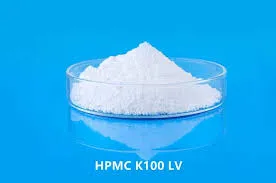
Dec . 10, 2024 07:40 Back to list
hpmc importer
Understanding HPMC Importer A Key Player in the Pharmaceutical Industry
Hydroxypropyl Methylcellulose (HPMC) is a widely used polymer in various industries, particularly in pharmaceuticals. Its applications range from drug formulation to serving as a thickening agent in food products and cosmetics. The role of an HPMC importer is crucial in ensuring that pharmaceutical manufacturers have a reliable supply of this essential ingredient. This article delves into the significance of HPMC importers, their operations, and the broader implications for the pharmaceutical industry.
What is HPMC?
HPMC is a non-ionic, water-soluble polymer derived from cellulose. It is known for its ability to form films, thicken solutions, and stabilize emulsions. Due to its biocompatibility and versatility, HPMC is extensively used in drug formulations, particularly in creating controlled-release and sustained-release dosage forms. It enhances the solubility of poorly water-soluble drugs, making it an indispensable component in modern pharmaceutical formulations.
The Role of HPMC Importers
HPMC importers play a vital role in the supply chain of the pharmaceutical industry. They are responsible for sourcing HPMC from manufacturers, often located in countries with advanced chemical production capabilities such as China, India, and the U.S. These importers ensure that pharmaceutical companies have access to high-quality HPMC that meets regulatory standards.
1. Sourcing and Supply Management HPMC importers engage with various suppliers to procure HPMC in bulk quantities. They establish long-term relationships with manufacturers to ensure a consistent supply and negotiate favorable terms. This is essential for pharmaceutical companies that rely on timely deliveries to maintain production schedules.
2. Quality Assurance Importers must ensure that the HPMC products they bring into their markets comply with the necessary regulatory standards, such as those set by the United States Food and Drug Administration (FDA) and the European Medicines Agency (EMA). This involves rigorous quality control processes and proper documentation to confirm that the imported products meet the required specifications.
3. Market Analysis and Trends HPMC importers also monitor market trends, pricing fluctuations, and supply chain disruptions. By understanding market dynamics, they can make informed decisions regarding purchasing, thus benefiting their clients in an increasingly competitive environment.
4. Regulatory Compliance Importing HPMC requires adherence to various regulatory frameworks. Importers must be well-versed in import regulations, customs clearance procedures, and documentation requirements to ensure smooth transactions.
hpmc importer

Challenges Faced by HPMC Importers
While HPMC importers play a crucial role in the pharmaceutical supply chain, they also face several challenges
1. Regulatory Challenges Different countries have varying regulations concerning the importation of pharmaceutical ingredients. Keeping up with these changes can be cumbersome and requires vigilance.
2. Market Volatility Prices of raw materials can fluctuate due to various factors including geopolitical issues, environmental regulations, and demand changes. Importers must navigate these uncertainties to maintain profitability.
3. Logistical Issues Transportation and logistics can pose significant challenges, especially with the global nature of supply chains. Importers need to ensure timely deliveries amidst potential delays caused by customs or shipping.
4. Competition The market for pharmaceutical-grade HPMC is competitive, with numerous suppliers and importers vying for market share. Importers must differentiate themselves through quality assurance, customer service, and additional value offerings.
Future Outlook
The demand for HPMC is anticipated to grow, driven by the increasing need for advanced drug delivery systems and the expansion of the pharmaceutical industry globally. As an essential ingredient, the role of HPMC importers will become even more critical in ensuring that pharmaceutical manufacturers have unimpeded access to quality materials.
In conclusion, HPMC importers serve as key conduits in the pharmaceutical supply chain, bridging the gap between manufacturers and pharmaceutical companies. By ensuring quality, managing logistics, and staying compliant with regulations, they help facilitate the production of safe and effective pharmaceutical products. As the industry continues to evolve, the importance of HPMC importers in navigating challenges and leveraging opportunities will only increase, reinforcing their position as indispensable partners in the pharmaceutical landscape.
-
Versatile Hpmc Uses in Different Industries
NewsJun.19,2025
-
Redispersible Powder's Role in Enhancing Durability of Construction Products
NewsJun.19,2025
-
Hydroxyethyl Cellulose Applications Driving Green Industrial Processes
NewsJun.19,2025
-
Exploring Different Redispersible Polymer Powder
NewsJun.19,2025
-
Choosing the Right Mortar Bonding Agent
NewsJun.19,2025
-
Applications and Significance of China Hpmc in Modern Industries
NewsJun.19,2025







